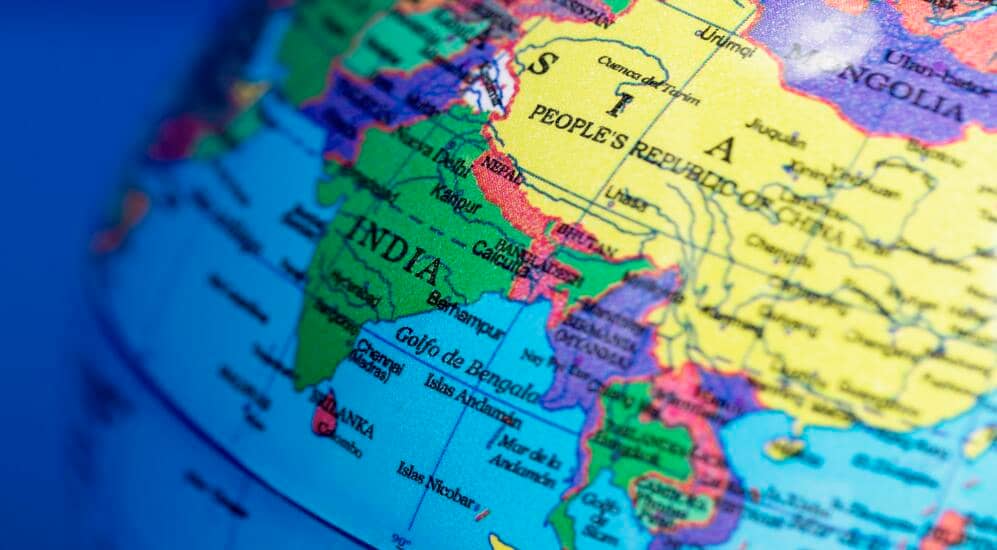
The history of the ETCA’s progress has been turbulent, with labor union opposition and staunchly Sinhala-nationalist politicians being major causes of previous roadblocks. There were protests against the agreement, which some perceived as endangering Sri Lankan labor while benefiting Indian interests. Despite 11 rounds of talks between 2016 and 2019, the negotiations came to a standstill. As part of the nation’s economic recovery plan, the current administration, headed by President Ranil Wickremesinghe, has been eager to revive the agreement.
Trade agreements have been highlighted by President Wickremesinghe, who took office in 2022 amid an economic crisis and a popular revolt that toppled his predecessor Gotabaya Rajapaksa. Despite the difficult fallout from the nation’s financial crisis, President Wickremesinghe is targeting enhanced accords with China and India. Earlier this month, Sri Lanka signed a free trade agreement with Thailand.
Significant talks began when the ETCA negotiations were resumed last year, which was a turning moment. According to an official update released following a Cabinet meeting on Monday, the Sri Lankan government sees the continuing negotiations as a “significant step towards strengthening the economic partnership between Sri Lanka and India.”
The 13th round of talks had nine subcommittees concentrating on diverse topics such rules of origin, trade facilitation, goods and services trade, customs processes, and trade facilitation. The meetings took place in New Delhi over ten days starting on January 8, 2024. According to people with knowledge of the negotiations, the two parties are looking for creative methods to connect investments to service trade without endangering local labor. Securing domestic employment and preserving the delicate balance between economic cooperation are priorities; as one senior official put it, “free movement of individual professionals is not anticipated in the agreement.”
Informing his Cabinet of the negotiations’ advancement, President Wickremesinghe emphasized how crucial these conversations are to the future of Sri Lanka’s economy. The official press statement emphasized both countries’ commitment to moving the negotiations forward by announcing that the 14th round of talks is set for the first week of March 2024.
The first free trade agreement between Sri Lanka and India was signed in 1998, marking the beginning of their economic cooperation. The agreement was often attempted to be upgraded, but these attempts were not successful. It was thought unnecessary at the time to negotiate a “Comprehensive Economic Partnership Agreement (CEPA)” when former President Mahinda Rajapaksa was in office. Officials in Colombo and New Delhi are keen to complete the agreement before the election cycle takes center stage since both nations are about to enter election years, with Sri Lanka scheduled to hold presidential elections later this year.
The significance of India-Sri Lankan economic relations is highlighted by the current geopolitical environment, not just for the two countries concerned but also in the larger framework of regional stability. It is critical to evaluate the possible effects on different stakeholders, such as businesses, labor unions, and the general public, as the discussions move forward. Analyzing the difficulties encountered in the earlier rounds of conversations illuminates the novel strategies being discussed in the current debates and offers insights into the complexity surrounding the ETCA.
The present negotiations are all the more significant because of the economic crisis that precipitated President Wickremesinghe’s ascent to power in 2022. Sri Lanka’s economy has to recover quickly and effectively, which means reaching reasonable and advantageous deals with important trading partners. Given this, Sri Lanka’s recent free trade agreement with Thailand is evidence of its determination to broaden the range of its business alliances.
In order to address concerns about local labor, the ETCA discussions are exploring ways to tie service trade to investments. This is a complex approach. In order to combine the advantages of economic cooperation with the protection of domestic job prospects, the agreement has guaranteed that it will not permit the free movement of individual specialists.
There is an added urgency to the negotiations because of the impending presidential elections in Sri Lanka, as both countries want to firmly establish the agreement before any potential shifts in the political environment occur. It is critical for negotiators to successfully negotiate these obstacles because the electoral dynamics have the potential to impact the direction and speed of the discussions.
As it stands up , the ongoing ETCA negotiations between Sri Lanka and India are very important for both countries’ economic destinies. Together with creative ways to deal with issues and problems, diplomatic attempts to get over previous roadblocks highlight Sri Lanka’s and India’s dedication to building a strong economic relationship. Stakeholders and observers will be closely monitoring the developments during the negotiations, given the wider implications for regional stability and economic resilience.
Entrepreneurship is all about telling your story. In SwiftNlift Business magazine, we promote and share stories and adventures of young and successful entrepreneurs who are overcoming startup challenges on their way to success. We allow digitally linked content to be uploaded and distributed globally.
23-May-2024, at time: -5pm
25-May-2024 , at time: -5pm
26-May-2024, at time: -5pm
Copyright © 2023 Swiftnlift Media And Tech LLP All rights reserved.